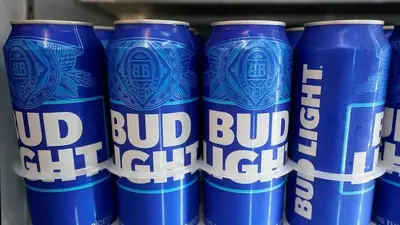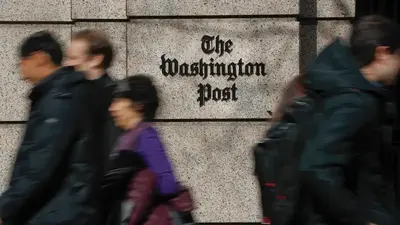Business
3 charged in insider trading case related to taking Trump media firm public, accused of making $22M
NEW YORK -- Three Florida men were charged Thursday with making more than $22 million through illegal insider trading before the public announcement that an acquisition firm was going to take former President Donald Trump's media company public.
The charges were outlined in an indictment unsealed in New York that did not in any way implicate Trump or Trump Media & Technology Group, which owns his Truth Social platform.
The charges make it less likely that Trump Media will be able to pocket the $1.3 billion promised upon completion of a merger with the acquisition firm. The merger is pending the approval of securities regulators.
According to the indictment, the men were invited to invest in the special purpose acquisition company, Digital World Acquisition Corp., and were provided confidential information that a potential target of DWAC and another acquisition company, Benessere Capital Acquisition Corp., was Trump Media.
Authorities said the defendants bought millions of dollars of DWAC securities on the open market before news of the Trump Media business was made public. After the public announcement, the men dumped their securities for a significant profit, according to the court papers.
The indictment said one of the defendants tipped off a neighbor to buy stock in DWAC, calling it a “good bet” without saying how he knew.
U.S. Attorney Damian Williams warned that insider trading “is not easy money,” calling it ”cheating."
“It's a bad bet,” Williams said in a release. "Because my Office, the Southern District of New York, is watching. And we're working quickly to investigate and prosecute anyone who corrupts our financial markets. And we'll keep at it as long as it takes. You can bet on that.”
The arrested men were identified as Michael Shvartsman, 52, of Sunny Isles Beach, Florida; his brother Gerald Shvartsman, 45, of Aventura, Florida; and Bruce Garelick, 53, of Fort Lauderdale, Florida.
All three made initial court appearances Thursday afternoon in Miami and were freed on bonds.
Two lawyers representing the Shvartsman brothers, Grant Smith and Robert Buschel, declined to comment. Garelick's lawyer, Michael Hursey, also declined to comment.
Michael Shvartsman owned Rocket One Capital LLC, a venture capital firm. Garelick was Rocket One's chief investment officer, according to court papers.
According to the indictment, Garelick was given a seat on DWAC's board of directors and had access to confidential information. It said he then shared that information with his co-conspirators.
The indictment said that between June 2021 and November 2021, the men shared the secrets with their friends and employees, who also bought tens of thousands of units of securities ahead of the merger announcement with Trump Media & Technology Group. Typically, a special purpose acquisition company, or SPAC, is formed with the intent to merge with a private company.
In early 2021, representatives of Trump Media, including Trump, began communicating with principles of Benessere about potentially merging to take Trump Media public, the indictment said.
Between March and June 2021, Trump Media and Benessere entered into nonbinding letters of intent to merge, it said.
The letters required confidentiality but did allow Benessere and its agents to share confidential information with investors in the special purpose acquisition companies, the indictment said.
Jay Ritter, a University of Florida expert on stock markets who has followed Trump’s media venture, said the new charges make it unlikely securities regulators will approve the merger.
Ritter added, though, that Trump’s company may be able to find alternative partners to help fund it.
“Trump Media’s likelihood of being a profitable company is fairly good. This is not some pie-in-the-sky electric vehicle startup that needs to burn through millions of dollars and not come up with anything,” he said. “Some other company will come through and invest."
The $1.3 billion that Trump Media would miss out on if the merger doesn't go through could have been used to pay salaries and office rent and expand its operation. As for DWAC, securities rules would require it to liquidate if the deal isn't completed.
The potential merger was once greeted as a near certainty by investors. Many were political supporters of Trump, a Republican, who were enraged he had been pushed off Twitter after the Jan. 6, 2021, insurrection at the U.S. Capitol. They saw Truth Social as a way to fight back against what they considered censorship on social media — and a sure moneymaker.
Fueling their enthusiasm was big talk about the new venture. Trump called his company a “big tent” social media rival that would allow all voices to be heard. Documents used to drum up interest in the company held out the prospect of taking on other media giants besides Twitter, including Netflix, Disney and CNN.
Shortly after the proposed merger deal was announced in late 2021, DWAC stock rocketed from about a $10 initial offering price to over $100, giving the combined company a potential market value in the billions of dollars.
But there were regulatory problems from the start. Besides possible insider trading, securities regulators were looking into news reports that there had been “substantive” talks between DWAC executives and Trump Media months before DWAC sold stock to the public for the first time, a possible violation of securities law.
Trump has called the investigations politically motivated “witch hunts” that had no substance in reality, a charge repeated by his many allies, including former congressman Devin Nunes, who is the CEO of Trump Media.
Stock in DWAC was trading at $12.70 in the early afternoon Thursday, down more than 50% over the past 12 months.
___
This story has been corrected to show Garelick, not Gerald Shvartsman, was Rocket One’s chief investment officer.
___
David Fischer contributed to this report from Miami.
-

 Business10h ago
Business10h agoGrowth for Ashmole & Co with acquisition of JonesWard Accountants
-
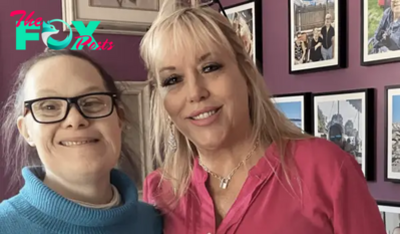
 Business15h ago
Business15h agoShared living opens new doors to people with disabilities – G. Wayne Miller, Ocean State Stories
-
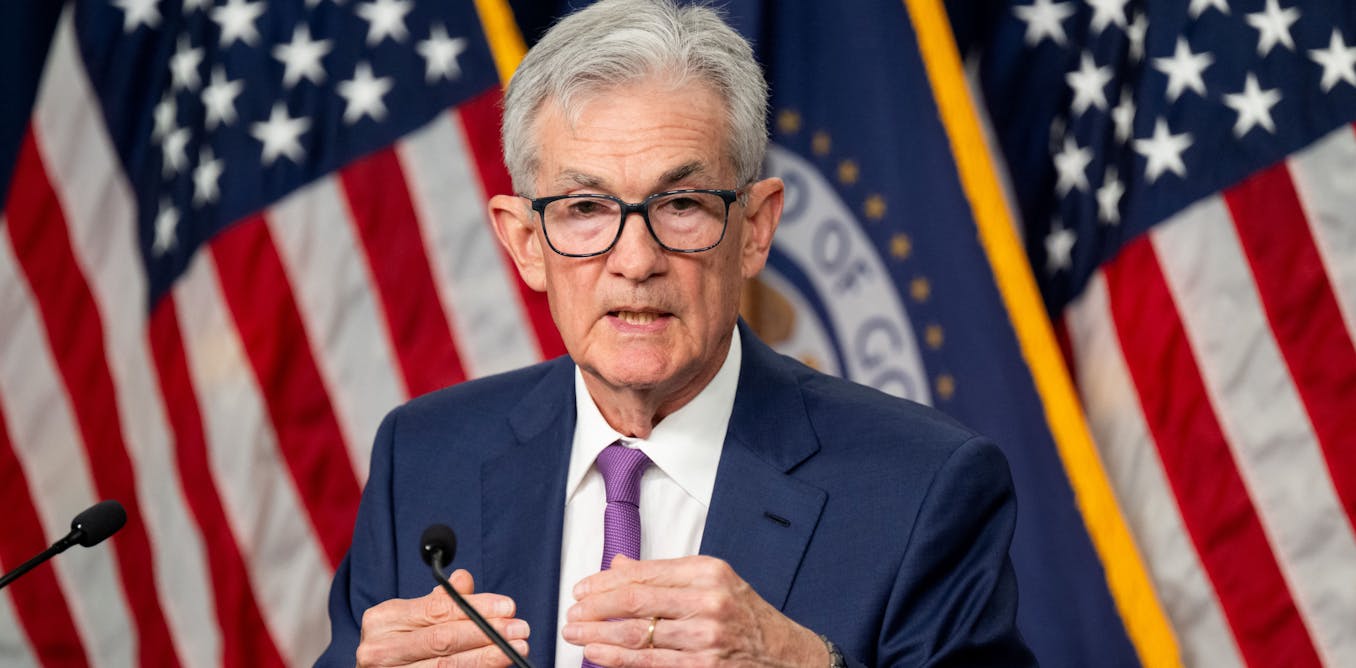
 Business22h ago
Business22h agoHigh interest rates aren’t going away anytime soon – a business economist explains why
-

 Business1d ago
Business1d agoWelsh sauce firm launches two new merchandise in partnership with Feast
-

 Business1d ago
Business1d agoB2Prime Acquires a Security Dealer License in Seychelles, Expanding Global Operations
-
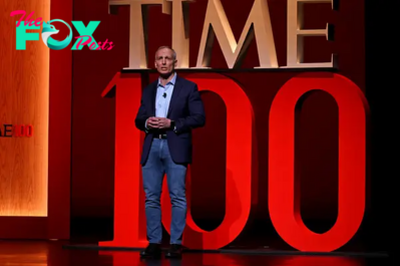
 Business1d ago
Business1d agoA Call for Embracing AI—But With a ‘Human Touch’
-

 Business2d ago
Business2d agoWhat is New at the Old Groovy Blueberry Location in New Paltz?
-

 Business2d ago
Business2d agoBlaze Ignites Inside LaGrangeville, New York Car Wash




